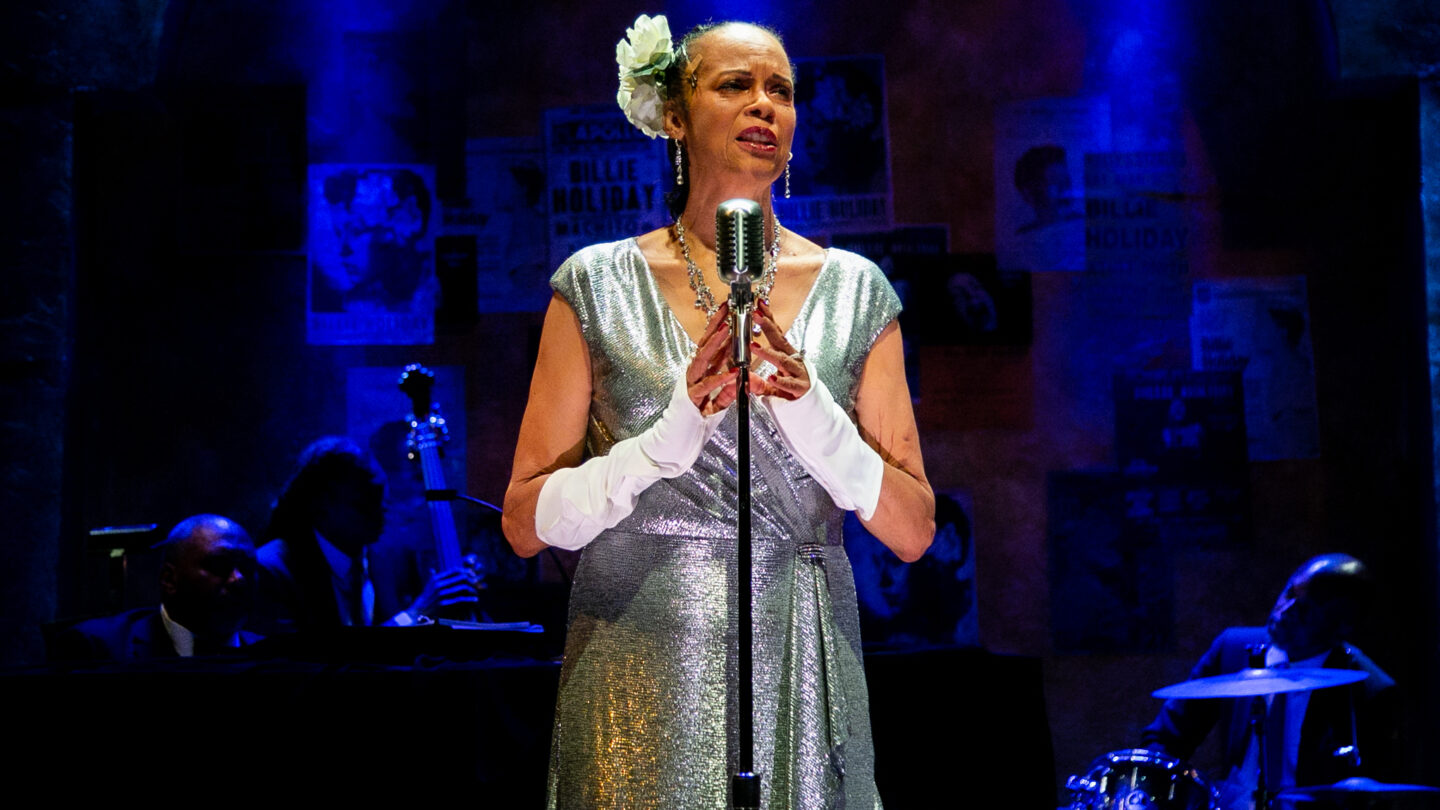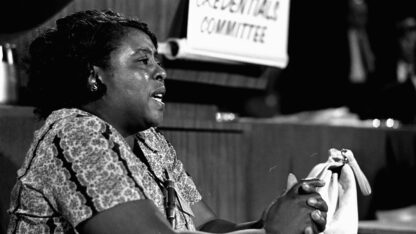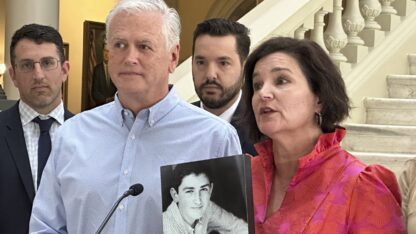'Lady Day' transports audiences to a 1950s Philadelphia jazz club for Billie Holiday’s final performance

When legendary jazz vocalist Billie Holiday sang the first notes of “Strange Fruit,” waiters stopped serving, and silence would immediately fall across audiences.
After finishing the song, Billie Holiday would leave the stage with nothing further, and the crowds would erupt in applause. She sang the song unapologetically for 20 years until her untimely death at age 44. Atlanta favorite and Broadway star Terry Burrell is taking on the role of Billie Holiday in Theatrical Outfit’s encore production of “Lady Day at Emerson’s Bar and Grill.”
She joined “City Lights” host Lois Reitzes via Zoom with director Eric J. Little to talk about their new iteration of “Lady Day” and the tragic life of its brilliant namesake.
Interview highlights follow below.
Holiday’s most dangerous song:
“I love the specificity of ‘Southern trees.’ It’s very specific on what type, because of what was happening in history during that time, and then thinking about today, what’s happening when it comes to Black people and the police or Black people back then being lynched,” said Little. “For me, I think that was what was so powerful about the song because it was truth. It was bold, and it was in your face, and it was something you couldn’t deny. And then just her powerful voice and the way she sang it — it’s very haunting and beautiful at the same time.”
“The FBI became involved and wanted her to stop singing that song, and then they made it really difficult for her to be able to perform it. And sometimes, she performed it out of defiance,” said Burrell. “They haunted her. They found every excuse in the book to try to catch her using drugs.” She continued, “She was betrayed by people who were very close to her, like her agent … He felt that if she was arrested that she wouldn’t have access to drugs, and he wanted her to get better, but the cost to her, to her mind, was devastating. A year and a day in prison, and she was arrested all over the country.”
How Burrell drew on family history for inspiration:
“This is also a woman who traveled through the South to perform and was often treated very poorly. I mean, she had to come through the back door. She had to eat in the kitchen, and she was the star of the show,” said Burrell. “When I stand on the stage, and I sing that song every night, I’m reminded of the stories that my uncle, who grew up in the South and who’s still alive today in his ’90s, shared with me just a few years ago. And to hear that come out of his mouth made it very real for me.”
“My uncle told me this one particular story, that when he was a little boy, his father took him into the woods to a place called ‘the Hammer.’ And on the trees, there were still burn marks from where the Klan would take Black men there for some kind of infraction — I don’t know what. They would literally beat them, and they would pour hot tar on their skin and then dump feathers on it,” Burrell recounted. “Now, I’m listening to him tell me this very factually, and he said the most chilling part, again, was him looking up and seeing his father pointing out the burn marks that were still there.”
Other musical moments from “Lady Day:”
“The most famous one [was] ‘God Bless the Child,’ which she wrote when her mother refused to help her at a time when she really needed some help,” said Burrell. “And it always angered her mother because she knew that Billie wrote it for her.”
“And of course, ‘What a Little Moonlight Can Do,’ you know, just the beat of it alone, the opening number. ‘All I know is I’m in love with you…’ ‘I wonder where our love has gone.’ It’s just lovely, and it’s kind of a love sonnet, even to the audience, because at the time that you meet her at the top of the show, it’s five months before she died, when life was not the best for her,” Burrell went on. “Oh, ‘Gimme A Pigfoot.’ I love that because she, you know, she always wanted to emulate the horn playing of Louis Armstrong and the Bessie Smith sound — the big sound, but her voice wasn’t like that. So between the two of them, she sort of developed Billie Holiday.”
Theatrical Outfit’s “Lady Day at Emerson’s Bar and Grill” production is on stage at The Balzer Theater at Herren’s through June 26. Tickets and more information are available at www.theatricaloutfit.org/shows/lady-day-22.








